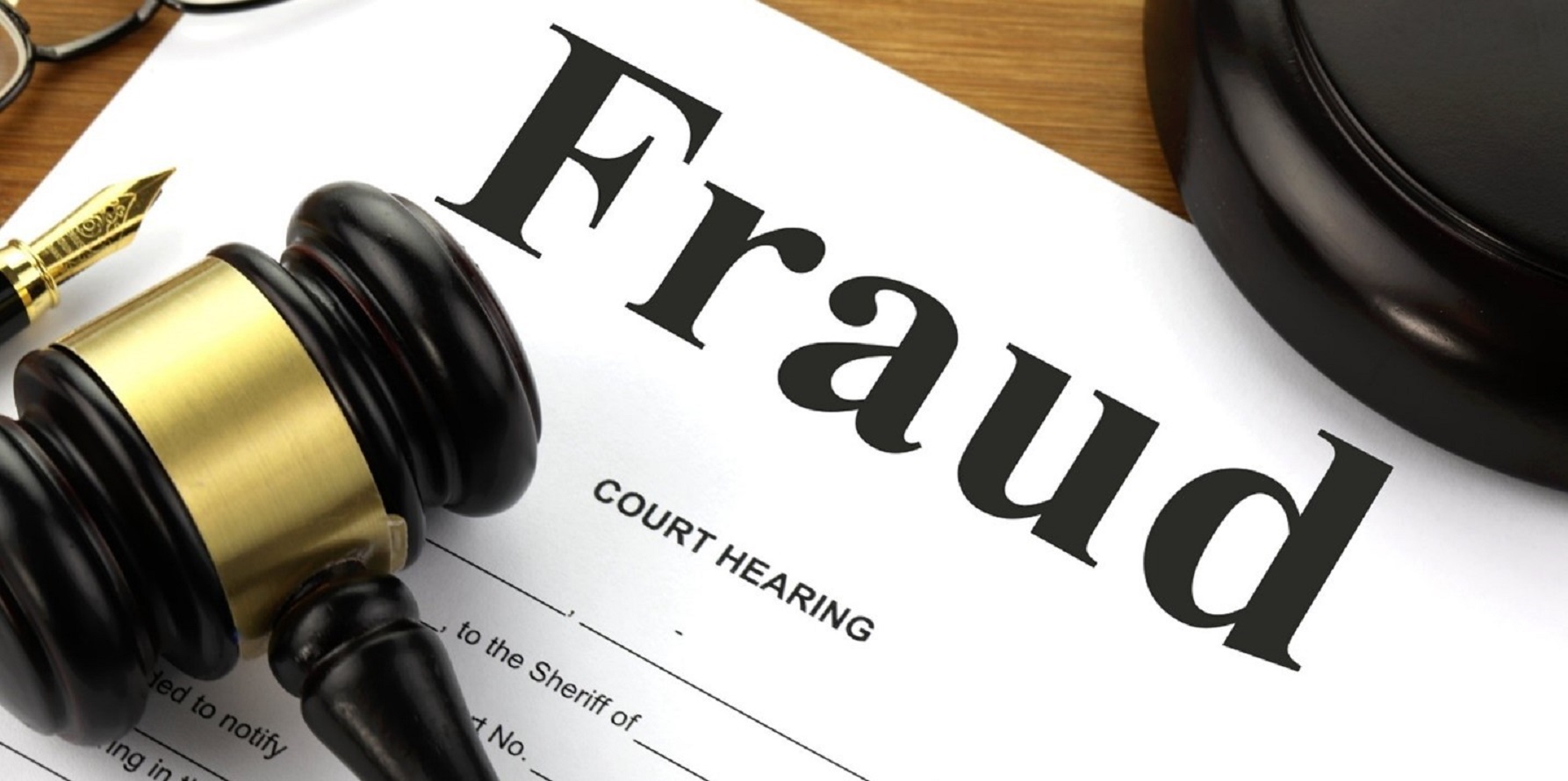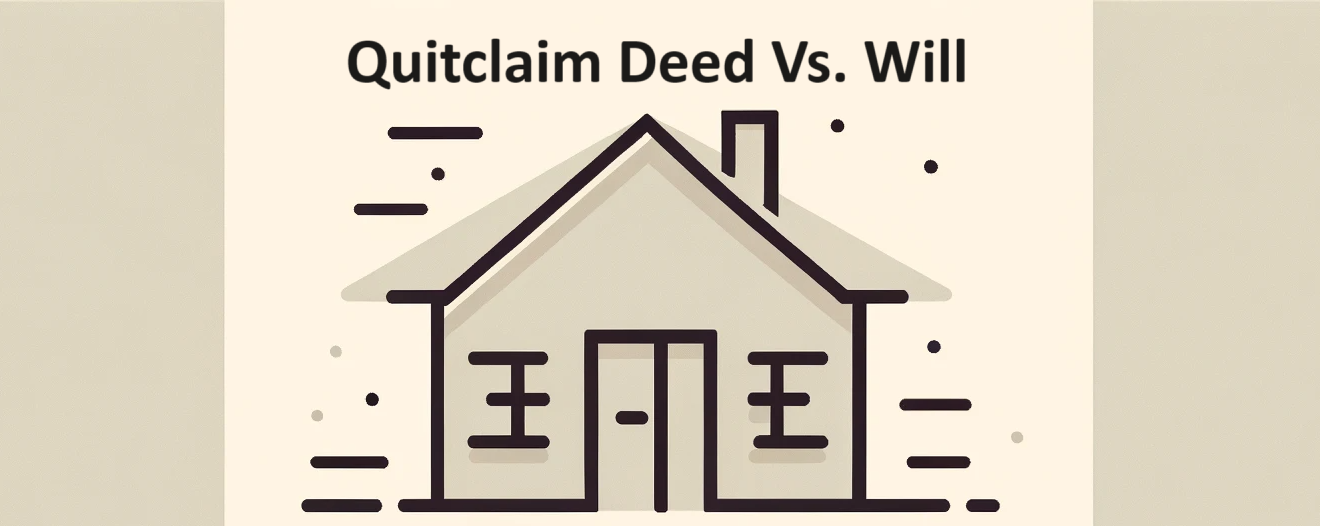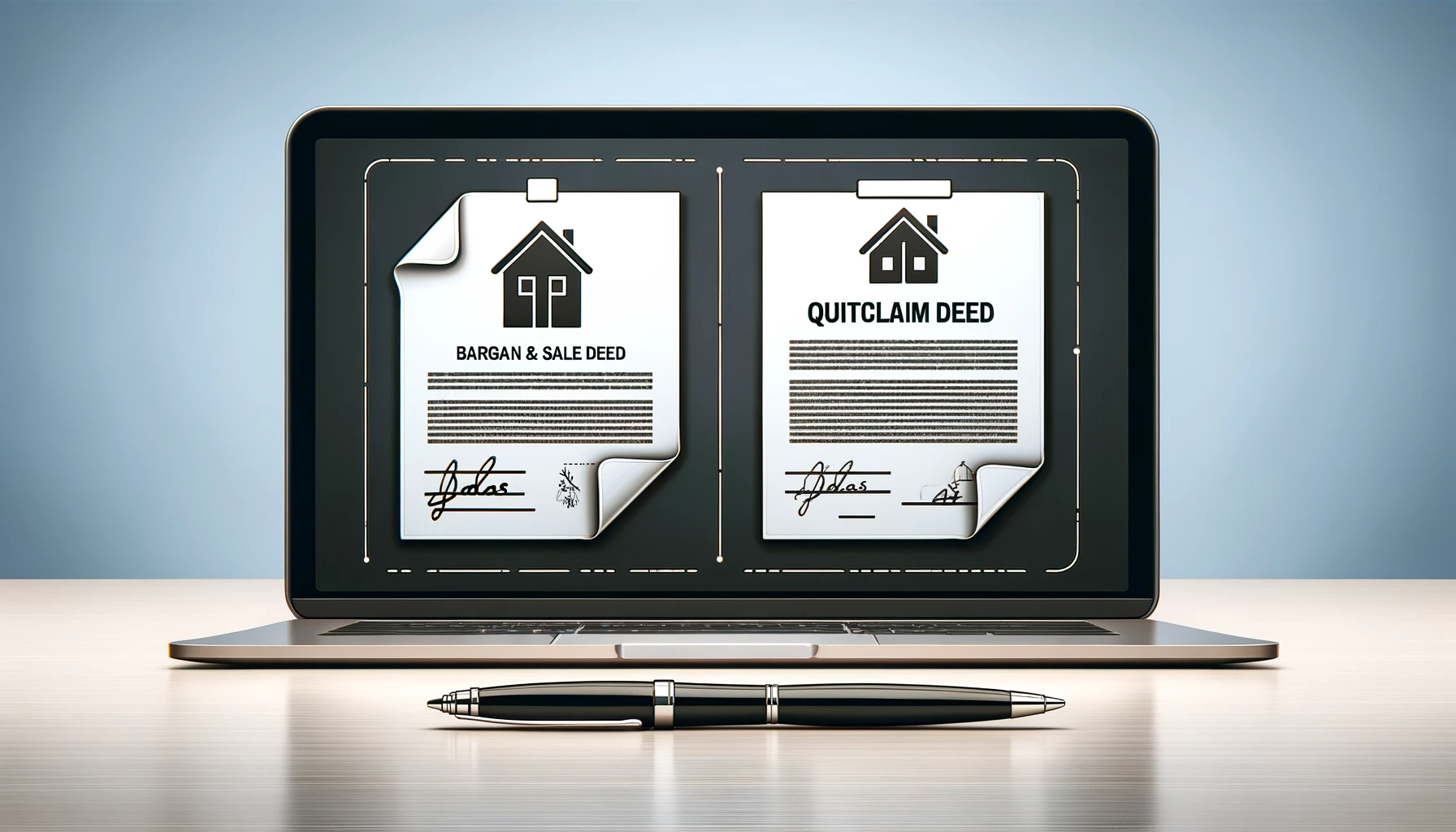Tag: quitclaim deed
-

Added to a Deed: What Are the Tax Consequences?
It’s a common question. You’re going to be added onto someone’s deed. Will you have to declare your new homeownership to the IRS? An acquisition of real estate is not considered income. But being named on a deed could still implicate taxes. Let’s explore why.
-

Quitclaim Forgery Is Snatching Florida Homes From Seniors and Dead People
Some people will steal their own mothers’ homes. In a stunning case of deed fraud, a woman named Wanda donned a wig and pretended to be her own elderly mother, then tried to steal her home in Hillsborough County, Florida. A video recording shows Wanda using the Notarize computer-based notary service, signing a quitclaim deed.…
-

Using a Quitclaim Deed: What Are the Drawbacks?
A quitclaim deed is a simple form that transfers a piece of real estate from one person to another. Any homeowner can fill out a quitclaim deed with their name and the name of the recipient, and the property’s existing legal description, sign it in front of a notary and record the document. That effectively…
-

Can a Quitclaim Deed Be Undone?
A quitclaim deed transfers real estate to a new owner. A properly completed and recorded quitclaim cannot be undone. Here’s why — and what to do next if there’s a problem with the transfer.
-

I’m Changing My Name. What About the House Title?
Your house title should state your current legal name. Of course, there are other documents that prove your identity. But having the correct name on the title will save steps when you want to sell or take a loan out on your home. So here’s a brief guide to changing the title to your home…
-

Divorce, Property Division, and the Quitclaim Deed
Parting of the Ways Co-ownership of a house can unwind in several ways. One way is through divorce proceedings. You might be wondering how this works, and what kind of decisions have to be made. You might have questions about passing the home to your ex using a quitclaim deed. Here are some of the…
-

Can I Quitclaim My House Into a Living Trust?
We’re glad you asked. You might have heard that a living trust can… All of the above are reasons many people use this method of passing their property along after they die. And a home is a typical piece of property that people put into a living trust. Importantly, a living trust is a…
-

Should Your Child’s Name Be on Your House Deed?
Compare the Alternatives Thinking of putting your child’s name on your house deed? If that’s the person who will get the home after you pass in any case, it might seem sensible. And maybe it is, in certain circumstances. After all, probate can be time-consuming, and even contentious. But before making this decision, do you…
-

Marriage and the Quitclaim Deed
When is a quitclaim a good way to transfer a whole or partial interest in a home? In a simple transaction among familiar parties. Especially where no money changes hands. No wonder quitclaim deeds are often used between spouses. Here, we take a look at a variety of ways quitclaims can convey property between partners…
-

Will Versus Quitclaim: When There’s a Conflict, Who Owns the House?
Usually, the quitclaim deed overrides the instructions in a will. But the devil is in the details. At age 60, Letitia bought her Sacramento home, as a sole owner. Twenty years later, aged 80, Letitia went into a care home. Letitia subsequently signed a quitclaim deed and gave the home to Jackson, the only one…
-

Using a Quitclaim Deed: Top 5 Reasons
Are you considering using a quitclaim deed? It’s a fast, simple, and reasonable way to transfer home ownership. It’s a good choice in certain situations. What are those certain situations? In contrast to warranty deeds, which are most often used in regular home sales, a quitclaim would more likely be used: Quitclaiming is a simple,…
-

Is a Quitclaim Deed Subject to Tax?
Quitclaims are sometimes used to transfer property interests from one family member to another, or between divorcing spouses. Parents might wonder if they should use quitclaims to pass property to children to avoid the probate process. It’s easy enough to do. The homeowner signs the document with a notary, takes it to the county recorder…
-

Elders and Real Estate Fraud: A Burgeoning Problem
Evelio and Milagros Esteban are in their 70s and they’ve been homeowners for years. But recently they ran into trouble paying their mortgage. That was when they mistakenly transferred their home deed to another Miami resident, who offered to help them rent out their home. Thinking they were signing a Section 8 housing application —…















